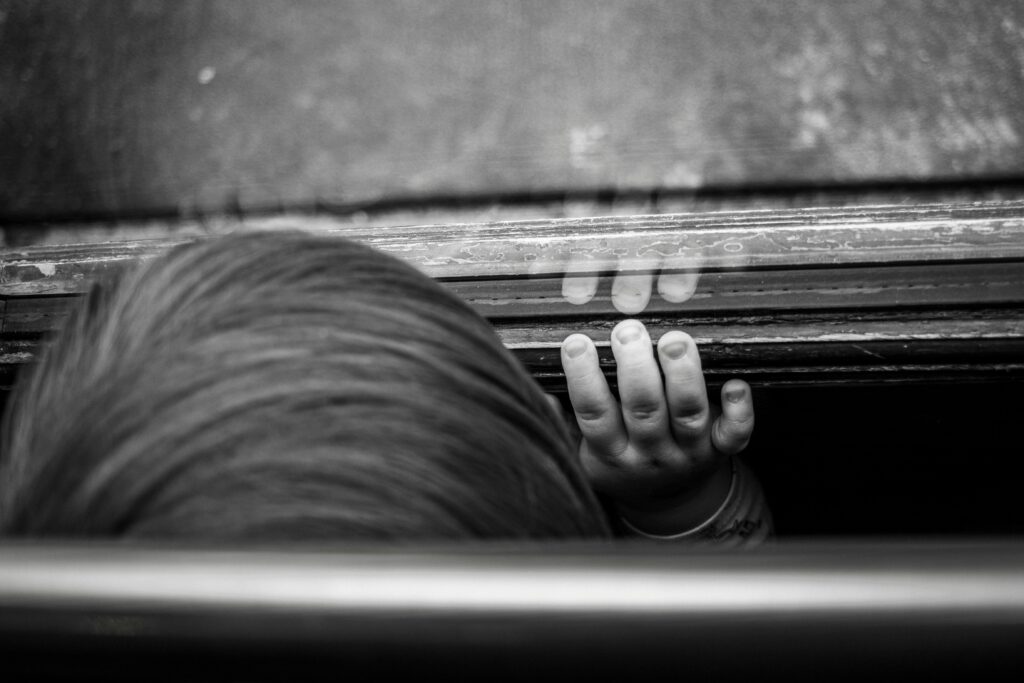Most moms and even partners feel anxiety or depression symptoms after the birth of a baby. But when those feelings linger or become too overwhelming, it’s critical that you reach out for help.
Types of Perinatal and Postpartum Depression and Anxiety
Having a baby causes many changes in your body and in your life, which puts you at risk for the “baby blues,” prenatal and postpartum depression, and more rarely, postpartum psychosis.
Your body undergoes hormonal changes during and after the birth of your baby. During pregnancy, your body’s estrogen and progesterone levels rise. Then, after giving birth, those hormones drop rapidly in the first 24 hours to pre-pregnancy levels. Some women may experience a drop in thyroid hormones, which can affect sleep, concentration, moods, and body weight.
The Baby Blues
It’s estimated that 50-80 percent of women experience the baby blues for a few days or a couple of weeks after childbirth. With the baby blues, you may experience:
- Mood swings
- Feelings of sadness, anxiety or being overwhelmed
- Crying spells
- Loss of appetite
- Trouble sleeping
Postpartum Anxiety or Depression
Postpartum anxiety and/or depression lasts longer than the baby blues and the symptoms are more severe. It occurs in about 1 in 5 women. Women may experience some of the same symptoms as the baby blues but can also experience:
- Anxiety around the baby or other children
- Suddenly feeling irritable, angry or sad
- Emotional numbness, like a robot going through the motions
- Feeling in a fog that makes it difficult to complete tasks
- Uninterested in activities they typically enjoy
- Sleeping too much or not at all
- Showing not enough, or too much, concern for the baby
- Withdrawal from family and friends
- Loss of interest in self care
Postpartum Psychosis
More rarely, women may experience a rare and severe form of depression called postpartum psychosis. This type of depression is temporary but is an emergency and requires immediate help. Only about 1 in 1,000 women may suffer from postpartum psychosis, but women with bipolar disorder or schizoaffective disorder are at a much higher risk.
Symptoms of postpartum psychosis typically begin within the first four weeks after birth and can include:
- Thought of harming themselves or their baby or children
- Distrust of other people
- Hearing voices or seeing things that are not there
- Refusing to eat or being unable to sleep
- An overwhelming sense of hopelessness
- Extreme confusion
Risk Factors
Any woman can experience anxiety or depression both during pregnancy and/or after birth. However, there are several factors that put women and their partners at greater risk:
- A personal history of depression or another mental illness (this is the largest risk factor)
- A family history of depression or another mental illness
- Lack of support from family or relationship problems with your partner
- Financial problems or stressful living situations
- A difficult pregnancy or traumatic birth experience
- Unplanned pregnancy or negative feelings about the pregnancy
- Multiple births, preterm birth, or congenital birth defects in the infant
Get Help Right Away
If you are struggling with feelings of anxiety or depression after your baby’s birth, or even during your pregnancy, contact your doctor right away. Remember, there is no reason to suffer silently or to feel ashamed, and not seeking help can put you or your baby at risk. Untreated anxiety or depression can have a lasting impact on bonding which, in turn, can permanently affect development.
Reach out to your prenatal provider, your baby’s pediatrician at Pediatrics West, or another provider you trust. If you are in crisis, there are also several hotlines that are there to support moms and are listed on the NIH website.
Treatment
There are many treatment options, depending on the type and severity of your case, that can decrease your symptoms or make them go away completely. Some women may just need counseling, while others may need medication. Each person is individual, and your provider can help you find the right treatment for you.
It’s important to stick to your treatment plan. If you feel you aren’t seeing progress, reach out to your provider so that it can be adjusted.
In addition to professional help, you can also take some steps yourself to help you find balance when experiencing anxiety or depression after your baby’s birth:
- Connect with other moms
- Get adequate sleep
- Ask for support from friends and family
- Lower your expectations and pressure on yourself
- Make time for yourself to have a break from the baby
- Do activities that you enjoy each day


